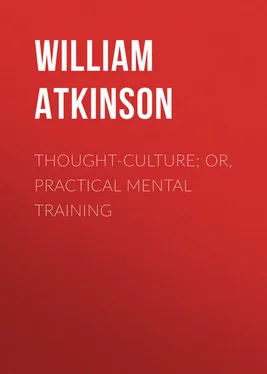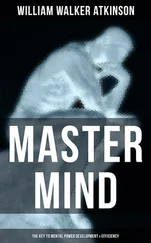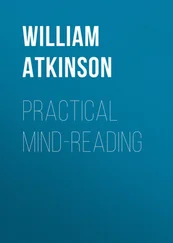William Atkinson - Thought-Culture; Or, Practical Mental Training
Здесь есть возможность читать онлайн «William Atkinson - Thought-Culture; Or, Practical Mental Training» — ознакомительный отрывок электронной книги совершенно бесплатно, а после прочтения отрывка купить полную версию. В некоторых случаях можно слушать аудио, скачать через торрент в формате fb2 и присутствует краткое содержание. ISBN: , Жанр: foreign_antique, foreign_prose, на английском языке. Описание произведения, (предисловие) а так же отзывы посетителей доступны на портале библиотеки ЛибКат.
- Название:Thought-Culture; Or, Practical Mental Training
- Автор:
- Жанр:
- Год:неизвестен
- ISBN:http://www.gutenberg.org/ebooks/41519
- Рейтинг книги:4 / 5. Голосов: 1
-
Избранное:Добавить в избранное
- Отзывы:
-
Ваша оценка:
- 80
- 1
- 2
- 3
- 4
- 5
Thought-Culture; Or, Practical Mental Training: краткое содержание, описание и аннотация
Предлагаем к чтению аннотацию, описание, краткое содержание или предисловие (зависит от того, что написал сам автор книги «Thought-Culture; Or, Practical Mental Training»). Если вы не нашли необходимую информацию о книге — напишите в комментариях, мы постараемся отыскать её.
Thought-Culture; Or, Practical Mental Training — читать онлайн ознакомительный отрывок
Ниже представлен текст книги, разбитый по страницам. Система сохранения места последней прочитанной страницы, позволяет с удобством читать онлайн бесплатно книгу «Thought-Culture; Or, Practical Mental Training», без необходимости каждый раз заново искать на чём Вы остановились. Поставьте закладку, и сможете в любой момент перейти на страницу, на которой закончили чтение.
Интервал:
Закладка:
Many psychologists classify the activities of the mind into three general divisions; viz. , (1) Thinking; (2) Willing; (3) Feeling. These divisions, which result from what is known as "the tri-logical classification," were first distinctly enunciated by Upham although Kant had intimated it very plainly. For many years before the favored division was but two-fold the line of division being between the cognitive , or knowing, activities, and the conative , or acting, activities, generally known as the Understanding and the Will, respectively. It took a long time before the authorities would formally recognize the great field of the Feelings as forming a class by themselves and ranking with the Understanding and the Will. There are certain sub-divisions and shadings, which we shall notice as we proceed, some of which are more or less complex, and which seem to shade into others. The student is cautioned against conceiving of the mind as a thing having several compartments or distinct divisions. The classification does not indicate this and is only intended as a convenience in analyzing and studying the mental activities and operations. The "I" which feels, thinks and acts is the same – one entity.
As Brooks well says: "The mind is a self-conscious activity and not a mere passivity; it is a centre of spiritual forces, all resting in the background of the ego. As a centre of forces, it stands related to the forces of the material and spiritual universe and is acted upon through its susceptibilities by those forces. As a spiritual activity, it takes the impressions derived from those forces, works them up into the organic growth of itself, converts them into conscious knowledge and uses these products as means to set other forces into activity and produce new results. Standing above nature and superior to its surroundings, it nevertheless feeds upon nature, as we may say, and transforms material influences into spiritual facts akin to its own nature. Related to the natural world and apparently originating from it, it yet rises above this natural world and, with the crown of freedom upon its brow, rules the natural obedient to its will."
In this book, while we shall fully and unquestionably recognize the "tri-logical classification" of the activities of the Mind into the divisions of Thinking, Willing and Feeling, respectively, nevertheless, we shall, for convenience, use the term "Thought" in its broadest, widest and most general sense, as: "The power or faculty of thinking; the mental faculty; the mind," rather than in its narrower and particular sense of: "the understanding or cognitive faculty of the mind." Accordingly, we shall include the cultivation of the mental activities known as Attention, Perception, Imagination, etc., together with the strictly cognitive faculties, under the general term of Thought-Culture.
CHAPTER III
PHASES OF THOUGHT
We have seen that the Mind is that something within us which Thinks, Feels and Wills. There are various phases of these three forms of activity. These phases have often been called "the faculties of the mind," although many authorities decry the use of this term, holding that it gives an impression of several parts or divisions of the mind, separate and distinct from each other, whereas these phases are merely the several powers or forms of activity of the Mind. Every manifestation of mental activity falls under one of the three before-mentioned general forms, i.e., Thinking, Feeling and Willing, respectively. Every manifestation of mental activity is either that of the Intellect, the Feelings, or the Will. Let us consider the first of these three general forms of mental activity – the Intellect.
The Intellect is defined as: "That faculty or phase of the human mind by which it receives or comprehends the ideas communicated to it by the senses or by perception, or other means, as distinguished from the power to feel and to will; the power or faculty to perceive objects in their relations; the power to judge and comprehend; also the capacity for higher forms of knowledge as distinguished from the power to perceive and imagine." The term itself is derived from the Latin term intellectus , the primary meaning of which is "to choose between," which primary meaning will give the true essential meaning of the term in its present usage; namely, the faculty or phase of the mind by which we "choose between" things or by which we decide .
The phase or faculty of Intellect concerns itself with Thinking, in the particular and narrower sense of that term. Its products are thoughts , mental images and ideas . An idea or mental image is a mental conception of anything, as for instance our conception which we express by the terms, man , animal , house , etc. Sometimes the word idea is used to express merely the abstract or generalized conception of the thing, as, for instance, Man in the sense of "all men;" while mental image is used in the sense of the mental conception of some one particular thing, as a " a man ;" it being held that no mental image can be had of a generalization. A thought is held to be a mental product arising from a combination of two or more ideas or mental images, as for instance: "A horse is an animal;" "a man is a biped;" etc.
The Intellect is held to embrace and include a number of minor phases or faculties, such as Perception, Understanding, Imagination, Memory, Reason and Intuition, which are explained as follows:
Perception is that faculty of the Mind which interprets the material presented to it by the senses. It is the power whereby we gain our knowledge of the external world, as reported to us by the channels of sense. Through Perception we are able to form ideas and mental images, which in turn lead to thoughts. The objects of which we become conscious through Perception are called percepts , which form the bases of what we call concepts , or ideas.
Understanding is that faculty of the Mind by the means of which we are able intelligently to compare the objects presented to it by Perception, and by which we separate them into parts by analysis, or to combine them into greater classes, or wholes, by synthesis. It produces ideas, both abstract and general; also concepts of truths, laws, principles, causes, etc. There are several sub-phases of Understanding, which are known as: Abstraction, Conception or Generalization, or Judgment and Reasoning, respectively, which are explained as follows:
Abstraction is that faculty of the Mind which enables it to abstract, or draw off, and consider apart from an object, a particular quality or property of an object, thus making of the quality or property a distinct object of thought apart from the original object. Thus are the abstract ideas of sweetness , color , hardness , courage , beauty , etc., which we have abstracted or drawn off from their original associations, either for the purpose of putting them out of sight and consideration, or else to view and consider them by themselves. No one ever tasted "sweetness" although one may have tasted sweet things ; no one ever saw "red," although one may have seen red things ; no one ever saw, heard, tasted or felt "courage" in another, although one may have seen courageous people . Abstract ideas are merely the mental conception of qualities or properties divorced from their associated objects by Abstraction.
Conception or Generalization is that faculty of the Mind by which it forms and groups together several particular ideas in the form of a general idea . By the processes of Conception we form classes or generalizations from particular ideas arising from our percepts . First, we perceive things; then we compare them with each other; then we abstract their particular qualities, which are not common to the several objects; then we generalize them according to their resemblances; then we name the generalized concept. From these combined processes we form a Concept, or general idea of the class of things to which the particular things belong. Thus from subjecting a number of cows to this process, we arrive at the general Concept of "Cow." This general Concept includes all the qualities and properties common to all cows , while omitting those which are not common to the class. Or, we may form a concept of Napoleon Bonaparte, by combining his several qualities and properties and thus form a general idea of the man.
Читать дальшеИнтервал:
Закладка:
Похожие книги на «Thought-Culture; Or, Practical Mental Training»
Представляем Вашему вниманию похожие книги на «Thought-Culture; Or, Practical Mental Training» списком для выбора. Мы отобрали схожую по названию и смыслу литературу в надежде предоставить читателям больше вариантов отыскать новые, интересные, ещё непрочитанные произведения.
Обсуждение, отзывы о книге «Thought-Culture; Or, Practical Mental Training» и просто собственные мнения читателей. Оставьте ваши комментарии, напишите, что Вы думаете о произведении, его смысле или главных героях. Укажите что конкретно понравилось, а что нет, и почему Вы так считаете.












